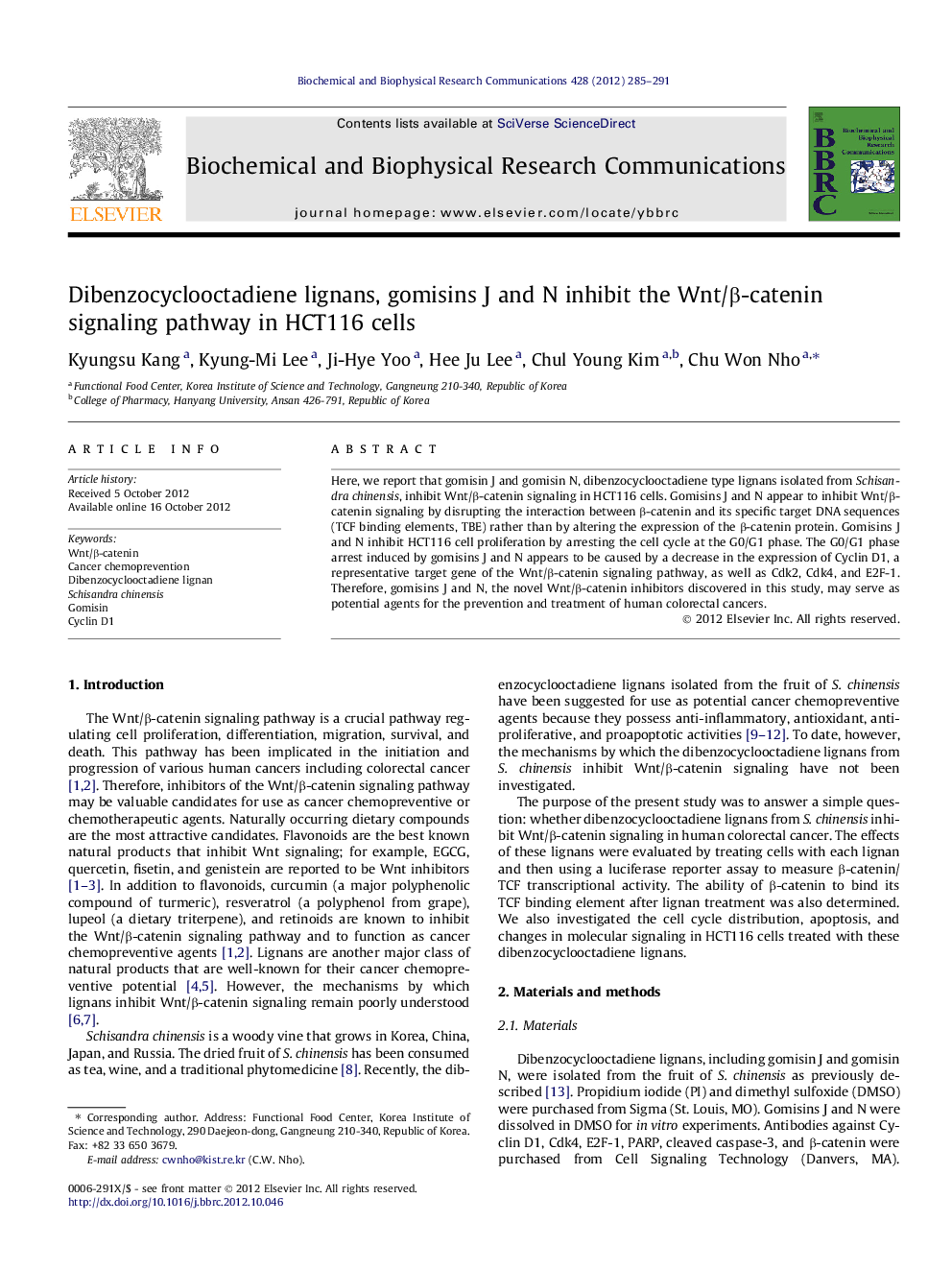| Article ID | Journal | Published Year | Pages | File Type |
|---|---|---|---|---|
| 1929413 | Biochemical and Biophysical Research Communications | 2012 | 7 Pages |
Here, we report that gomisin J and gomisin N, dibenzocyclooctadiene type lignans isolated from Schisandra chinensis, inhibit Wnt/β-catenin signaling in HCT116 cells. Gomisins J and N appear to inhibit Wnt/β-catenin signaling by disrupting the interaction between β-catenin and its specific target DNA sequences (TCF binding elements, TBE) rather than by altering the expression of the β-catenin protein. Gomisins J and N inhibit HCT116 cell proliferation by arresting the cell cycle at the G0/G1 phase. The G0/G1 phase arrest induced by gomisins J and N appears to be caused by a decrease in the expression of Cyclin D1, a representative target gene of the Wnt/β-catenin signaling pathway, as well as Cdk2, Cdk4, and E2F-1. Therefore, gomisins J and N, the novel Wnt/β-catenin inhibitors discovered in this study, may serve as potential agents for the prevention and treatment of human colorectal cancers.
Graphical abstractSchematic diagram of the possible molecular mechanism underlying the inhibition of the Wnt/β-catenin signaling pathway and the induction of G0/G1-phase arrest by gomisins J and N, derived from the fruits of S. chinensis, in HCT116 human colon cancer cells.Figure optionsDownload full-size imageDownload as PowerPoint slideHighlights► Gomisins J and N inhibited Wnt/β-catenin signaling pathway in HCT116 cells. ► Gomisins J and N disrupted the binding of β-catenin to specific DNA sequences, TBE. ► Gomisins J and N inhibited the HCT116 cell proliferation through G0/G1 phase arrest. ► Gomisins J and N inhibited the expression of Cyc D1, a Wnt/β-catenin target gene.
